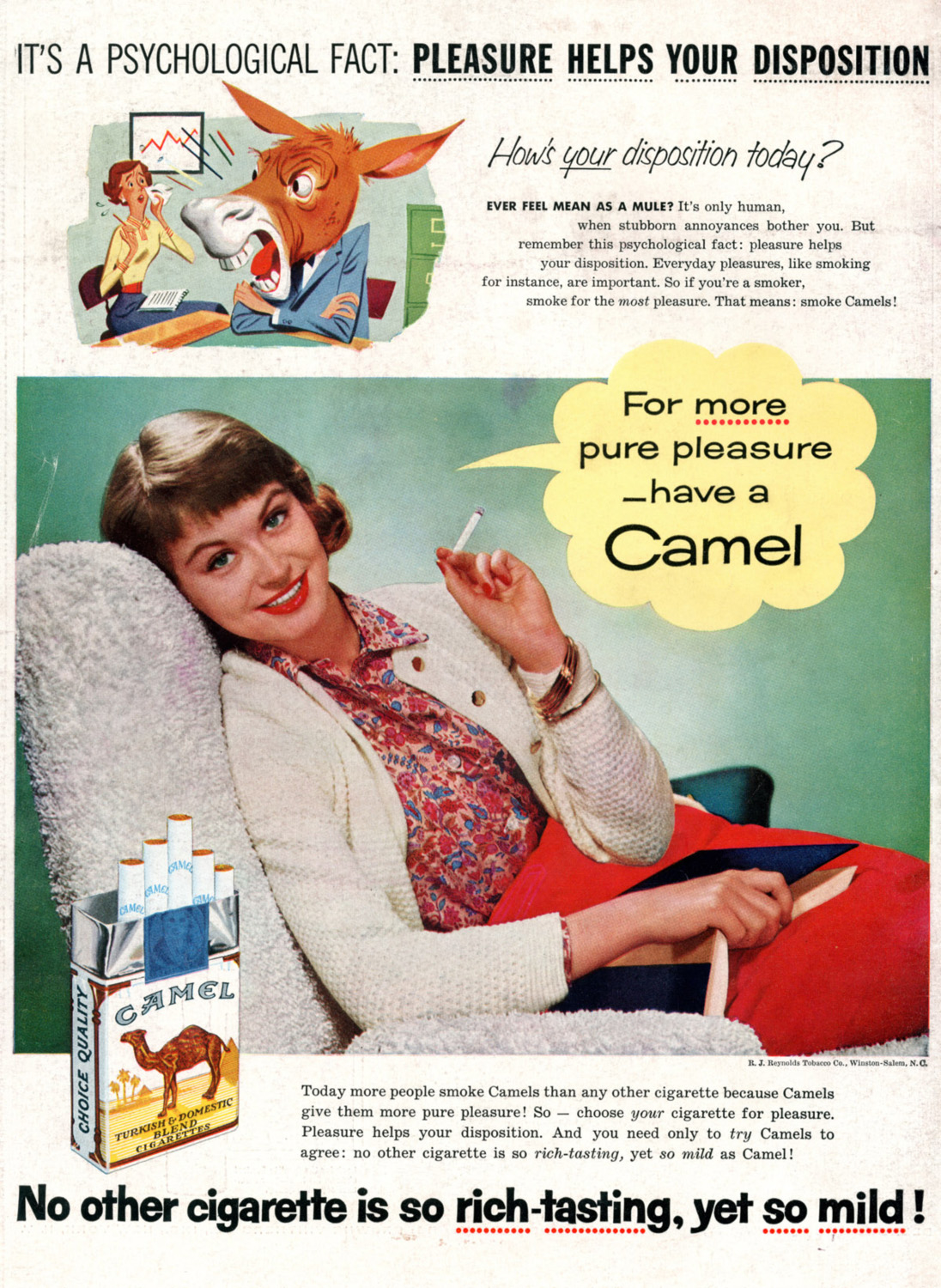How tobacco companies linked cigarettes and mental health
After researchers analyzed over 25 studies about smoking and mental health, they came to a conclusion that may surprise some people: quitting smoking is linked with lower levels of anxiety, depression and stress.
Why might that be surprising? The tobacco industry has invested significant resources to connect tobacco with mental health, including giving away cigarettes to psychiatric facilities, supporting research that positions cigarettes as a way to self-medicate and using stress relief themes in marketing.
Big Tobacco gave away free cigarettes to psychiatric facilities
People with mental health conditions and substance use disorders are a large customer base for the tobacco industry. They are estimated to account for 40 percent of cigarettes smoked in the U.S., despite only making up 25 percent of the population.
The tobacco industry has nurtured these higher smoking rates in several ways, including giving free cigarettes away to psychiatric facilities and mental health groups. They have also given free cigarettes to homeless shelters and soup kitchens, which serve many people with mental health conditions.
Multiple studies have shown that people in treatment for substance use and mental health conditions are more successful with their treatment if they quit smoking. People recovering from substance use disorders are more likely to avoid a relapse, and people in recovery from depression or mood disorders experience fewer symptoms if they quit smoking.
The tobacco industry funded and coordinated research on mental health
Tobacco companies have supported the development of research that aims to link smoking with mental health benefits. For example, the tobacco industry funded research to show that people with mental illness use nicotine to self-medicate.
Tobacco companies also developed internal research programs and partnerships with external researchers to study the effects of nicotine on the brain. As the author of the research paper “Scientific Research and Corporate Influence: Smoking, Mental Illness, and the Tobacco Industry” wrote: “tobacco companies became closely involved with selected academic researchers and helped shape research questions (and answers) about the relationship between smoking and mental illness.”
Companies use themes of stress relief and relaxation in advertising
The tobacco industry uses many themes in their advertising to sell cigarettes. One of those themes, according to the National Cancer Institute’s 2008 report on the role of media in tobacco use, is that “smoking can help solve some personal and emotional problems by relieving stress and promoting relaxation.”
This theme can be seen in many tobacco ads, from early Camel ads that picture people relaxing with a cigarette and read: “It’s a psychological fact, pleasure helps your disposition. For more pure pleasure—have a Camel,” to the long-running Newport marketing campaign featuring the tagline “Pleasure” and images that associate cigarettes with having fun.
More in targeted communities
Want support quitting? Join EX Program
By clicking JOIN, you agree to the Terms, Text Message Terms and Privacy Policy.
Msg&Data rates may apply; msgs are automated.




